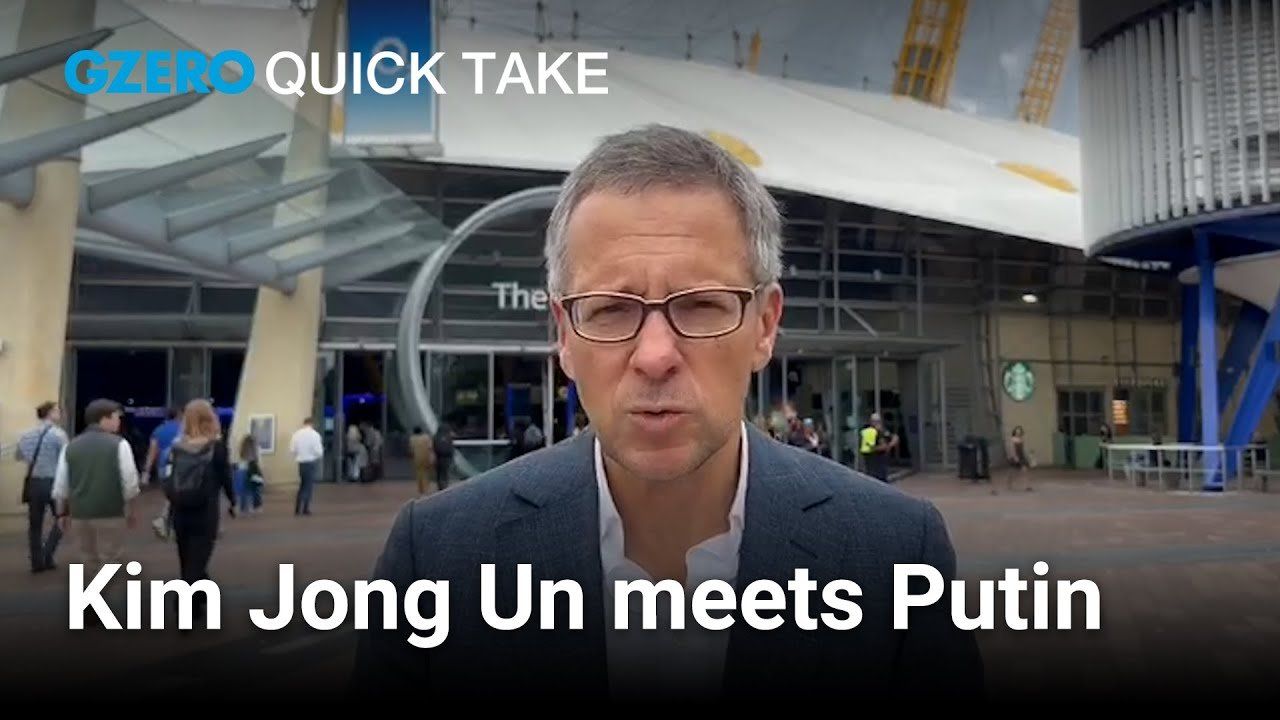September 12, 2023
Ian Bremmer's Quick Take: Hi everybody. Ian Bremmer here kicking off your week with a Quick Take from London, as you can see.
And Kim Jong Un is now in Russia, Vladivostok, on his armored personal train. People always love to talk about the fact that the train is armored. I guess that's to ensure that if you try to take it out, you're going to have to try really, really hard to meet with Vladimir Putin.
This is their big annual conference that before Kim Jong Un was announced, it was the president of Laos who was the most exciting participant. In other words, Putin is really scraping the bottom of the barrel to find high level leaders that will engage with him publicly. And that, of course, is not only an indication of how the war is not going for Putin, but also the fact that he is increasingly a rogue state from the perspective of the United States and its advanced industrial allies.
In the near-term, his ability to continue to fight this war continues to be real. His economy is still performing comparatively better than the Americans or others would have expected, given all the sanctions. But in the medium-term, the fact that he has to go to the North Koreans for weapons, the fact that the Chinese, the Emiratis, others refused to provide him with military support, when the Americans say, “If you do, there's going to be hell to pay.” Well, the only countries left that will work with the Russians aren't the ones that are already fully sanctioned by the United States and Europe. It's other rogue states. It's Belarus, it's Syria, it's Iran. And that, of course, means that a constellation of rogues, they act in ways that are credibly disruptive and irresponsible on the global stage. These are the countries that engage in asymmetric warfare, the countries that engage in human trafficking, in drug traffickin, the countries that are willing to engage in proxy warfare and support radicals in other countries around the world, and Russia now becoming the most powerful of the world's rogue states, should give us pause long-term in the geopolitical stability of the world.
I think about before the Russian invasion of Ukraine, the cyberattacks that had been occurring from Russian criminals against the United States, for example. And the Americans told the Russians, “You've got to stop that or we're going to hit you hard.” The Russians did stop it. They actually pulled back on it. Would they do that in this environment? I think that's highly unlikely. In other words, I think we're going to see from Russia over the coming years the kind of activities towards the West that we've seen from Iran over the past years towards countries in the Middle East and ironically, happening just at the time that the Iranians are becoming a more normalized actor by opening relations with the Saudis, with the Emiratis, and with others.
Fascinating times geopolitically in the world, but dangerous times as well. That's it for me. Thank you. All.
More For You
- YouTube
In this Quick Take, Ian Bremmer addresses the killing of Alex Pretti at a protest in Minneapolis, calling it “a tipping point” in America’s increasingly volatile politics.
Most Popular
- YouTube
Who decides the boundaries for artificial intelligence, and how do governments ensure public trust? Speaking at the 2026 World Economic Forum in Davos, Arancha González Laya, Dean of the Paris School of International Affairs and former Foreign Minister of Spain, emphasized the importance of clear regulations to maintain trust in technology.
- YouTube
Will AI change the balance of power in the world? At the 2026 World Economic Forum in Davos, Ian Bremmer addresses how artificial intelligence could redefine global politics, human behavior, and societal stability.
Ian Bremmer sits down with Finland’s President Alexander Stubb and the IMF’s Kristalina Georgieva on the sidelines of the World Economic Forum to discuss President Trump’s Greenland threats, the state of the global economy, and the future of the transatlantic relationship.
© 2025 GZERO Media. All Rights Reserved | A Eurasia Group media company.
